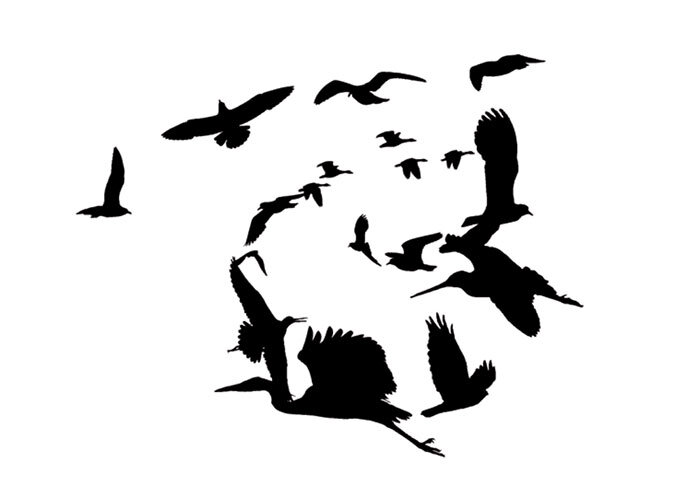Our story,
What began in 2003 as a design workshop at the Estonian Academy of Arts has since grown into a participatory design methodology and, since 2018, an independent publishing platform.
After developing the first Subjective Atlas of the EU from an Estonian perspective, its initiator, Annelys de Vet, invited her design students in Eindhoven to map their Netherlands, capturing lived realities that revealed underlying social and political dynamics. The third atlas, Subjective Atlas of Palestine, profoundly shaped the trajectory of the series by mapping daily experiences of life under occupation—where identity and history are systematically erased from official maps. This edition underscored the urgency of counter-mapping as a form of resistance and raised a central question: how can subjective mapping amplify voices, challenge power structures, and reclaim space? It marked a turning point, affirming the atlas as a tool for agency and self-representation.
Since then, artists, activists, and institutions across the world have initiated collaborations, resulting in Subjective Atlases from Pakistan to Colombia, Amsterdam to Brussels, and beyond. In 2018, this growing international interest led to the founding of Subjective Editions by Annelys de Vet and Kurt Vanbelleghem. Through collaborative and participatory processes, these atlases map places from the inside out, interweaving personal stories with political urgency. Each atlas is unique and grounded in its local context, yet together they form a growing collection that challenges conventional cartography and advocates for a plural, situated, and nuanced understanding of our diverse—yet deeply interconnected—worlds.
Subjective atlas of Brussels,
Interview by Paris-Budapest-Metro, 2025
Subjective mapping of Lubumbashi,
workshop, SIRIMUKA Mobile Journalisme, October 2024
Subjective mapping of Bosnia & Herzegovina,
Video report, Perspectiva, May 2023
Subjective mapping of Amsterdam,
Project pesentation,Pakhuis de Zwijger, 22 October 2021
method,
Each invitation to create a Subjective Atlas begins within the community itself, grounded in local social and institutional contexts. The local partner defines the scope—whether the atlas will map a country, a region, or a city—and frames the questions and tensions it seeks to address, positioning the atlas as a form of counternarrative.
Workshops are then organised in different locations and with diverse communities, following the participatory and artistic format of Subjective Editions. In these sessions, participants reflect on what living in their region means to them. They do so by mapping a phenomenon, experience, or observation drawn from their reality.
Subjective Editions provides the overarching methodology, guidance, and a digital toolbox that support the local team throughout the process. The local partner secures funding and resources, and assembles a team (typically a designer, an editor, and a project coordinator) to work directly with participants and guide the creation and submission of contributions. Subjective Editions then steps in as editor-in-chief, curating and finalising the material, and overseeing production and printing. Once the book is ready, the local team brings it to life by organising a public launch and activating its content through exhibitions, discussions, and participatory activities.
impact,
The Subjective Atlases reimagine what a map can be. Instead of showing fixed borders or standardised symbols, they capture the lived experiences of communities, revealing everyday realities that are often overlooked. Each atlas acts as a counter-narrative to the dominant representations, opening new ways of seeing and understanding the world.
The process begins with workshops where people come together to share and map what matters to them. Through drawing, discussion, and creative exploration, participants reflect on their surroundings, exchange perspectives, and discover both common ground and local characteristics as well as tensions. These mappings highlight how the personal and the political are deeply connected, while also fostering dialogue and a stronger sense of place.
Once published, the Subjective Atlas continues to spark conversation. Through exhibitions, talks, and public events, the work travels beyond its place of origin, inviting wider audiences to engage with its stories. Over time, the growing series has become a unique archive of situated knowledge—one that encourages us to question dominant narratives, rethink our sense of place, and recognise the complex, interconnected realities that shape our worlds.
organisation,
Subjective Editions is a non-profit organisation (vzw) based in Brussels. Each atlas is created together with local partners and shared through international distribution networks. The organisation is run by Annelys de Vet (founder and editor-in-chief) and Kurt Vanbelleghem (producer and publisher), supported by a changing team of allies.
As a non-profit, we don’t receive structural funding. Instead, each project is made possible through the commitment of our local partners, who secure financial support within their context. We stand alongside them in this process—helping with funding applications and passing on insights and experiences from earlier collaborations—so that every new atlas can build on the strength of those that came before.
Kurt Vanbelleghem is a Belgian curator, publisher and cultural entrepreneur. He focuses on the development and implementation of artistic strategies within societal contexts. He is co-founder of Subjective Editions and coordinates the operational, presentation and distribution processes. See: www.presentfuture.be
Dr. Annelys Devet is a Belgian-based Dutch designer, researcher, and educator. She initiated the subjective atlas series because she believes in the importance of visualising place-based understanding of our worlds. She is the series' editor-in-chief and coordinates workshops and design processes. See www.bureaudevet.be
partners,
The Subjective Atlas methodology empowers people to amplify the voices of their communities. Each new atlas begins with a local partner who shares the ambition to create a counternarrative and sets the foundation for collaboration.
The partner takes ownership of the process, and together we define the scope—whether mapping a country, region, or city—and frame the questions the atlas will address. The partner decides whose perspectives to represent and which organisations or communities to involve. Within this framework, each contributor is free to tell their own story, rooted in lived experience.
Every new edition brings together a constellation of people, which typically includes an initiator, a project leader connected to an organisation, a fundraiser, a writer and a graphic designer and often interns. Subjective Editions acts as editor-in-chief, supporting the process and overseeing the publication. From securing resources to launching the book and activating its content, the local partner guides the project, ensuring the atlas reflects and strengthens the community it emerges from.
reviews,
awards.
The Subjective atlas of Palestine has been awarded as one of the ‘Best Book Design' 2007’. The Subjective atlas of Hungary and the Subjective altas of Mexico received a Henry van de Velde Label 2011. The Subjective atlas of Fryslân was nominated for the Vredeman De Vriesprijs 2013.




































